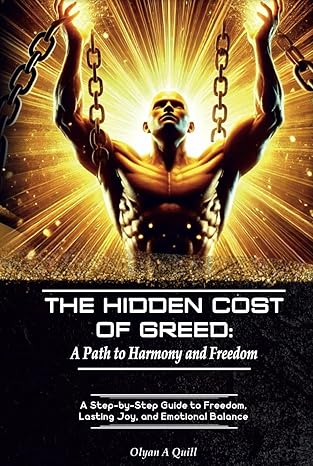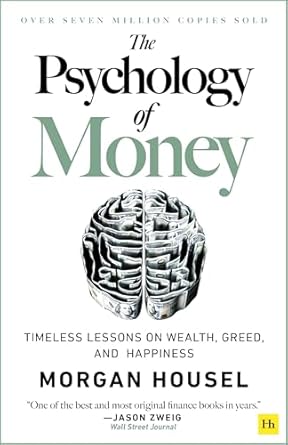Chasing Everything, Gaining Nothing: Lessons from Real-Life Stories
Peters said, “Excessive desire is like quicksand; the harder you struggle for more, the deeper you sink into dissatisfaction.” What if the constant chase for “wanting more,” “doing more,” and “being more” is really taking away your happiness? In a world that glorifies excess, understanding the price of greed could be the key to unlocking true fulfillment.
Why Do We Crave So Much?
Before diving into the dangers of excessive desire, let’s understand why we often find ourselves wanting more:
- Social Pressure: Social media bombards us with images of perfect lives, dream vacations, and luxury lifestyles, making us feel like we’re falling behind.
- Cultural Conditioning: From childhood, many of us are taught that success equals wealth, status, or material possessions.
- Fear of Missing Out (FOMO): The fear of not experiencing something or not having something others do drives us to chase endlessly.
While these influences are powerful, they often leave us feeling unfulfilled because they focus on external validation rather than inner satisfaction.
The Downside of Wanting Everything
1. Financial Instability
Chasing every shiny object can quickly lead to financial ruin. Consider this example:
- John was obsessed with keeping up appearances. He bought a luxury car he couldn’t afford, dined at expensive restaurants weekly, and splurged on designer clothes. Within two years, his credit card debt spiraled out of control, forcing him to declare bankruptcy.
Key Takeaway: Living beyond your means may bring short-term pleasure but can result in long-term pain.
2. Emotional Burnout
Constantly striving for more takes a toll on mental health. When you tie your self-worth to achievements or possessions, you set yourself up for disappointment. For instance:
- Mary spent years climbing the corporate ladder, sacrificing family time and personal hobbies along the way. By the time she reached her dream position, she felt lonely, exhausted, and disconnected from loved ones.
Key Takeaway: Success without balance leaves you emotionally drained.
3. Relationship Strain
Greed doesn’t just affect you, it impacts those around you too. Prioritizing material gain over meaningful connections can alienate friends and family. Imagine:
- Mathew always chose work trips over spending weekends with his partner. Over time, their relationship grew distant, leading to resentment and eventual separation.
Key Takeaway: Relationships thrive on presence, not presents.
Lessons from Real Life: Stories of Loss and Redemption
Case Study 1: The Lottery Winner Who Lost It All
Stories of lottery winners blowing through millions aren’t uncommon. Take Evelyn Adams, who won $5.4 million in the 1980s. Instead of managing her newfound wealth wisely, she indulged in reckless spending, bad investments, and gambling. By the early 2000s, she was living in a trailer park, broke and regretful.
What We Can Learn: Money alone doesn’t guarantee happiness; wisdom and discipline matter more.
Case Study 2: A CEO’s Journey to Simplicity
After years of relentless pursuit of profit, tech executive Tim Ferriss decided to downsize his life. In his book The 4-Hour Workweek, he shares how simplifying his lifestyle allowed him to focus on passions, travel, and relationships. His story reminds us that less can truly be more.
How to Break Free from the Cycle of Greed
Here are practical steps to help you shift your mindset and prioritize what truly matters:
- Practice Gratitude Daily: Start each day by listing three things you’re grateful for. This simple habit shifts your focus from lack to abundance.
- Set Clear Boundaries: Know when to say “no” to unnecessary expenses or commitments that don’t align with your values.
- Focus on Experiences Over Things: Research shows that experiences like traveling, learning new skills, or spending quality time with loved ones bring deeper joy than material goods.
- Reevaluate Your Goals: Ask yourself, “Am I pursuing this because it makes me happy, or because society says I should?”
Conclusion: Finding Contentment in a World of Excess
The price of greed isn’t just financial; it’s emotional, relational, and existential. By recognizing the pitfalls of wanting everything all the time, we open ourselves to a life of greater purpose, peace, and fulfillment. Remember: True wealth isn’t measured by what you own but by the richness of your experiences, relationships, and inner contentment.
Now it’s your turn! Share your thoughts below: How do you practice contentment in a world focused on ‘more’? Don’t forget to follow us on social media for daily inspiration and tips to live your best life!”



